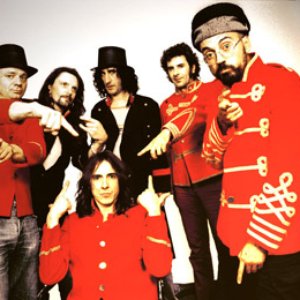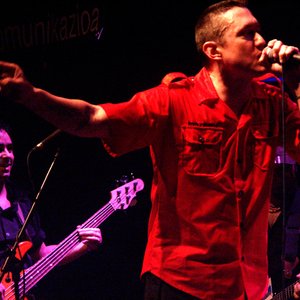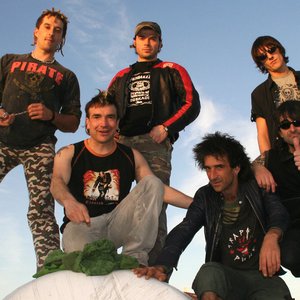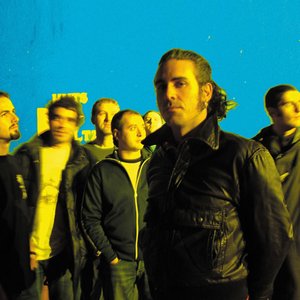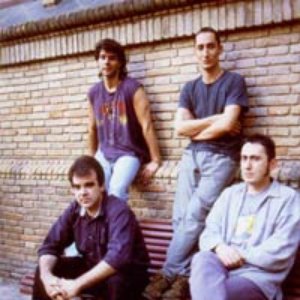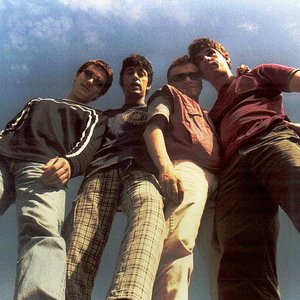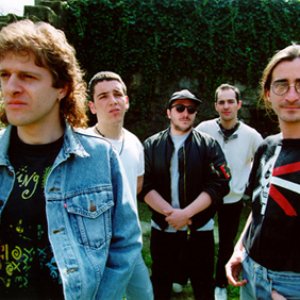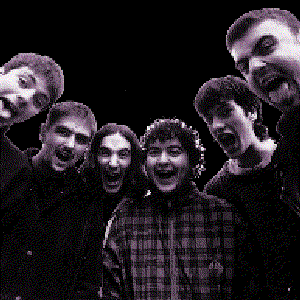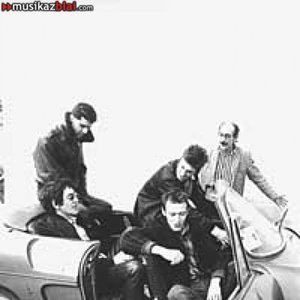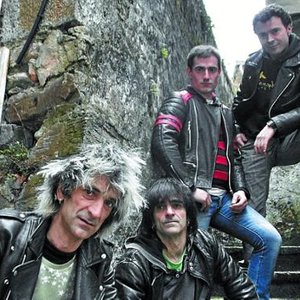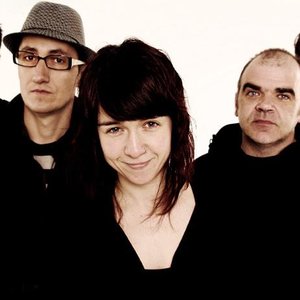Biography
-
Years Active
1990 – 2001 (11 years)
-
Founded In
Guipúzcoa, País Vasco, Spain
-
Members
- Fermín Muguruza
- Iñigo Muguruza (1990 – 1996)
- Kaki Arkarazo
- Mikel Abrego (1991 – present)
- Mikel Kazalis
Negu Gorriak (Basque for "Red Winters" or "Harsh Winters") is an underground European punk/ska/dub/rap/rock group fromed in 1990 in Gipuzkoa, Basque Country. Their musical style combines rock, hip-hop, and reggae. It is impossible, however, to separate the band from its political ideology and its identification with the Basque Country and its language (Euskara). Negu Gorriak is formed by Fermin Muguruza, Iñigo Muguruza and Kaki Arkarazo after the ska group Kortatu was disbanded in the most popular point of its career in order to avoid creative settlement. The influences from Os Resentidos, Shinehead, Public Enemy, and N.W.A are very clear in their eponymic record where the drums are sequenced and the sampler becomes very present.
In 1991 two new members will become part of the group: Mikel Kazalis (Anestesia) and Mikel Abrego (Bap!!), incrementing considerably the quality and depth of music of the band. In that year they also created Esan Ozenki (say it out loud, in Basque), their own record label. Published in 1991, Gure Jarrera would make Negu Gorriak both famous (as the most solid group of the Basque music rock scene) and infamous (for the song Ustelkeria, which will lead to them to court).
The band's next output (Gora Herria) would be an EP with covers and dub music remixes with the collaboration of their friend Manu Chao. This can be consider a "bridge work" that separates Negu Gorriak early efforts and their 1993 Borreruak Baditu Milaka Aurpegi (The hangman is the man of the thousand faces, a verse from to writer Bernardo Atxaga), perhaps the best record of their career. In it the guitars grow angry, and the lyrics become more poetic and somewhat less political; feelings take over and there are clears notes of frustration and pain. Musically, the record moves from hip hop to punk to ska and rock with extreme naturality.
One year later Idea Zabaldu (Spread the Idea) was released. The influence of long visits to Latin America (and the Zapatista revolution) and the birth of Fermin Muguruza's son is not small. The band has grown mature and children mortality in the third world and AIDS are very present both in the lyrics and also in the tone of the recording. Not so angry and aggressive, Idea Zabaldu would be their last recording with original songs.
Salam Agur would be Negu Gorriak's last album. In it they decided to salute their friends and music influences by covering some of their favourite songs. Influential artists covered were BAP!!, Otis Redding, The Who, Macka B, Minor Threat, Bob Marley, Public Enemy, The Clash, Redskins, Poison Idea, Errobi, Dead Kennedys, Linton Kwesi Johnson, Anestesia and NWA. Once again, as it happened with Kortatu they decided to disband the group in order to avoid creative settling, in practice in 1996, but officially not until 2001 when they finnaly won the trial for the song Ustelkeria.
Artist descriptions on Last.fm are editable by everyone. Feel free to contribute!
All user-contributed text on this page is available under the Creative Commons Attribution-ShareAlike License; additional terms may apply.

